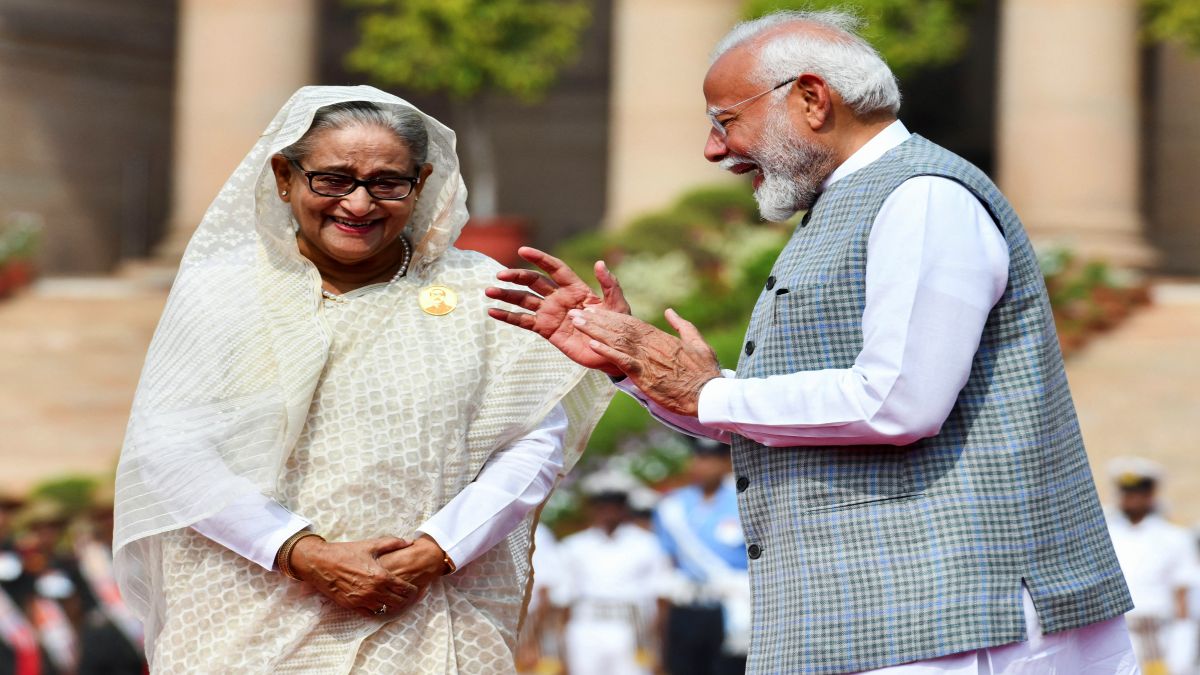Delhi's reset in Bangladesh without Sheikh Hasina
)
Undoubtedly, the fall of former Prime Minister Sheikh Hasina amid a widespread "people's power" uprising and the installation of an interim administration led by Nobel laureate Muhammad Yunus in Dhaka mark a turning point in Bangladesh's turbulent history. It is a period that, as many have noted, holds both potential and danger, for a calm and astute response from everyone involved in maintaining regional stability.
In sharp contrast to previous years, Bangladeshi land was effectively kept off-limits to various terrorist and insurgent groups, as well as those who supported them, for nearly 15 years, all of whom were anxious to cause harm to India. Without the coordinated efforts of the Bangladeshi government at this time and the mutually beneficial cooperation between the relevant institutions in both countries, this significant shift would not have been feasible. No administration in New Delhi can be blind to or unaffected by these unavoidable facts.
India has a long-standing policy of abstaining from judging what are essentially the internal political affairs of other nations in order to uphold the well-established concept of non-interference. In this sense, Bangladesh has not been an exception. Those who maintain the belief that we could have influenced Bangladesh's internal politics during Sheikh Hasina and the Awami League's rule, owing to our perceived closeness to and power over important decision makers in Dhaka, would be well advised to bear this basic constraint in mind.
Over the past fifteen years, India and Bangladesh have mostly coexisted quietly as neighbors, free from the animosity and blame that characterized their relationship for a big portion of the previous fifteen years. As a result, relationships have flourished in many other domains, including infrastructure development, trade and commerce, multimodal connectivity, security, and interpersonal interactions. Every year, around 15 lakh citizens of Bangladesh visit India for a variety of reasons, including business, pleasure, and medical care. In 2021–2022, bilateral trade reached $18 billion.
Once unimaginable, cooperation in the power and energy industry has grown to be a crucial tenet of the two countries' relationship; at the moment, Bangladesh imports up to 1,160 MW of power from India. There is a ton of room for advancement in each of these categories and beyond.
Many in India recognize and respect Bangladesh's outstanding achievements in numerous socioeconomic development indices, including literacy, infant mortality, women's empowerment, and financial inclusion. Businesses in India are attempting to emulate the success that Bangladesh's garment sector has attained. The notion of microfinance, initially introduced by Grameen Bank in Bangladesh, has been adopted by other Indian establishments.
This is not an attempt to romanticize the recent past or to claim that relations between Bangladesh and India have always been ideal. Although India has tried its hardest to match Bangladesh's efforts in easing its security concerns, some in Bangladesh's civil society are still appalled by the fact that Indian security forces continue to kill Bangladeshi nationals at the borders, even though India has made an effort to reduce the number of these deaths. The issue of fair distribution of river waters, which is Bangladesh's top concern, is difficult to resolve, in part because of India's growing need. Though it is still a work in progress, these complicated issues can and will be handled to the satisfaction of all parties with political will and persistence. Recriminating against one another and inflaming animosity toward divisive topics cannot be the solution.
Understandably, the chaos caused by the overthrow of the previous government has raised concerns about Bangladesh's potential for being swept up in the winner-take-all politics of the past, as well as by religious fanaticism and the cross-currents of unbridled geopolitical rivalry among major powers. Decision-makers, opinion leaders, and citizens of Bangladesh, as well as those of other nations in the region and beyond, cannot disregard these issues.
The young student leaders who led the movement for political change and their supporters should remember that millions of regular Indians share the same developmental aspirations as their counterparts in Bangladesh at a time when new social and political forces are rapidly emerging in Bangladesh. We wish them well in their endeavors. A few of the all-pervasive adversaries that pursue the citizens of both countries are endemic poverty, high rates of youth unemployment, uncontrollably rising prices, climate change, environmental degradation, and the spread of infectious illnesses. These enemies know no boundaries. Needless to say, the only way to tackle these shared difficulties is in a cooperative rather than a hostile or mistrustful spirit.
India and Bangladesh ought to embrace the promise of Bangladesh's fundamental reset and look forward to the future with newfound optimism and confidence, ignoring the dangers that lie ahead. It is not an option to go back to the finger-pointing and naysaying of the past.
